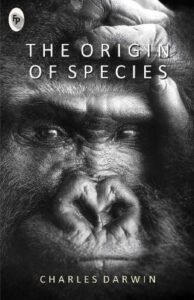“The Origin of Species” by Charles Darwin is one of the most influential scientific works ever published. In this book, Darwin presents his theory of evolution by natural selection, explaining how species evolve over time through the differential survival and reproduction of individuals with advantageous traits. Darwin’s work revolutionized the field of biology and provided a unifying framework for understanding the diversity of life on Earth. The book remains a cornerstone of evolutionary biology and a foundational text in the history of science.

Key Takeaways:
1. Natural Selection: Darwin’s theory of natural selection posits that individuals with traits better suited to their environment are more likely to survive and reproduce, passing those traits on to future generations. This process leads to the gradual evolution of species over time.
2. Common Descent: Darwin argues that all species share a common ancestor and that the diversity of life on Earth can be traced back to a single origin. This idea of common descent challenged the prevailing views of the time and laid the groundwork for modern evolutionary biology.
3. The Role of Variation: Variation within species is a key component of natural selection. Darwin recognized that individuals within a species exhibit differences in traits, and these variations are crucial for the process of evolution.
4. The Fossil Record: Darwin used evidence from the fossil record to support his theory, showing how extinct species are related to living ones and how the history of life on Earth can be understood through the lens of evolution.
5. The Impact on Science and Society: “The Origin of Species” had a profound impact on both science and society, challenging traditional views of creation and leading to significant debates about the implications of evolution for religion, ethics, and human identity. Darwin’s work continues to influence scientific research and philosophical discussions about the nature of life and the origins of species.






Discussion about this post